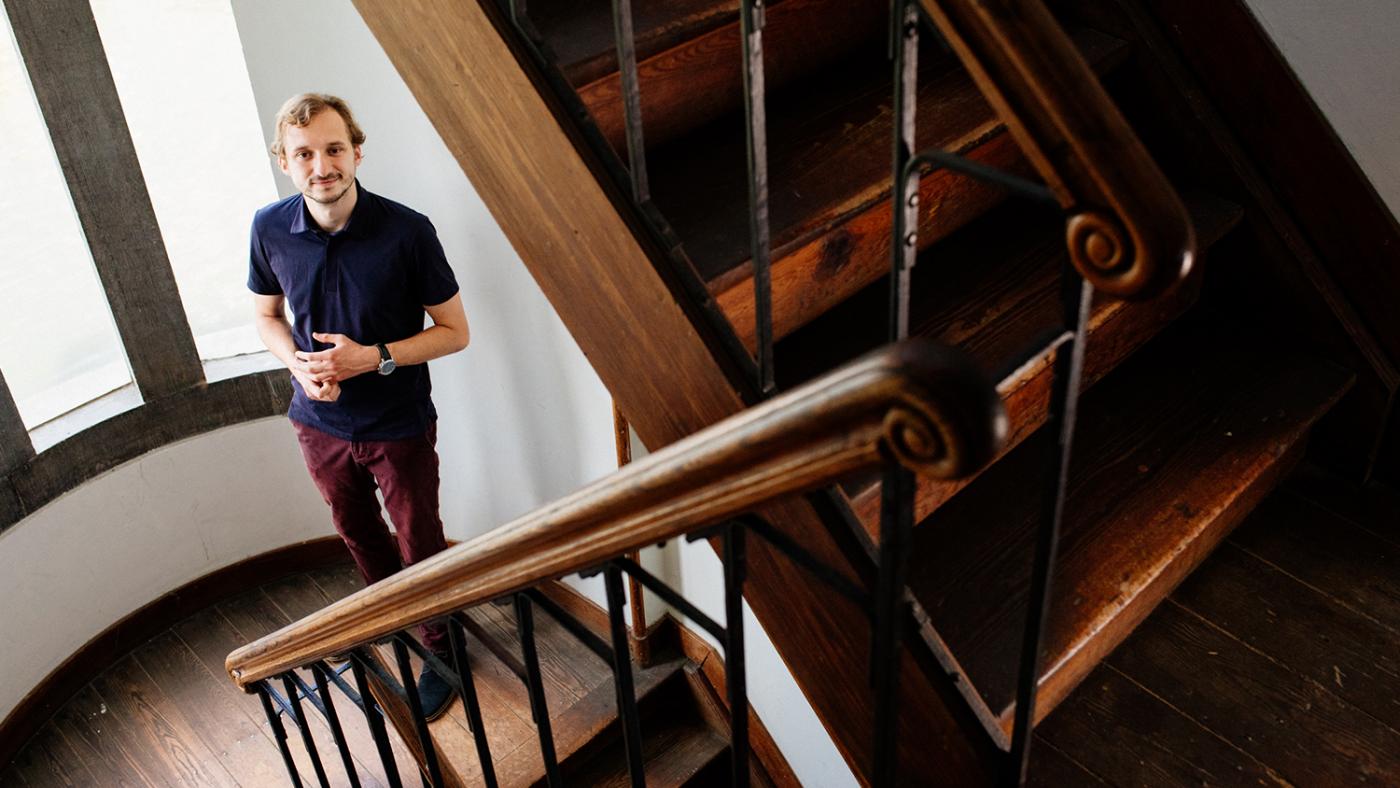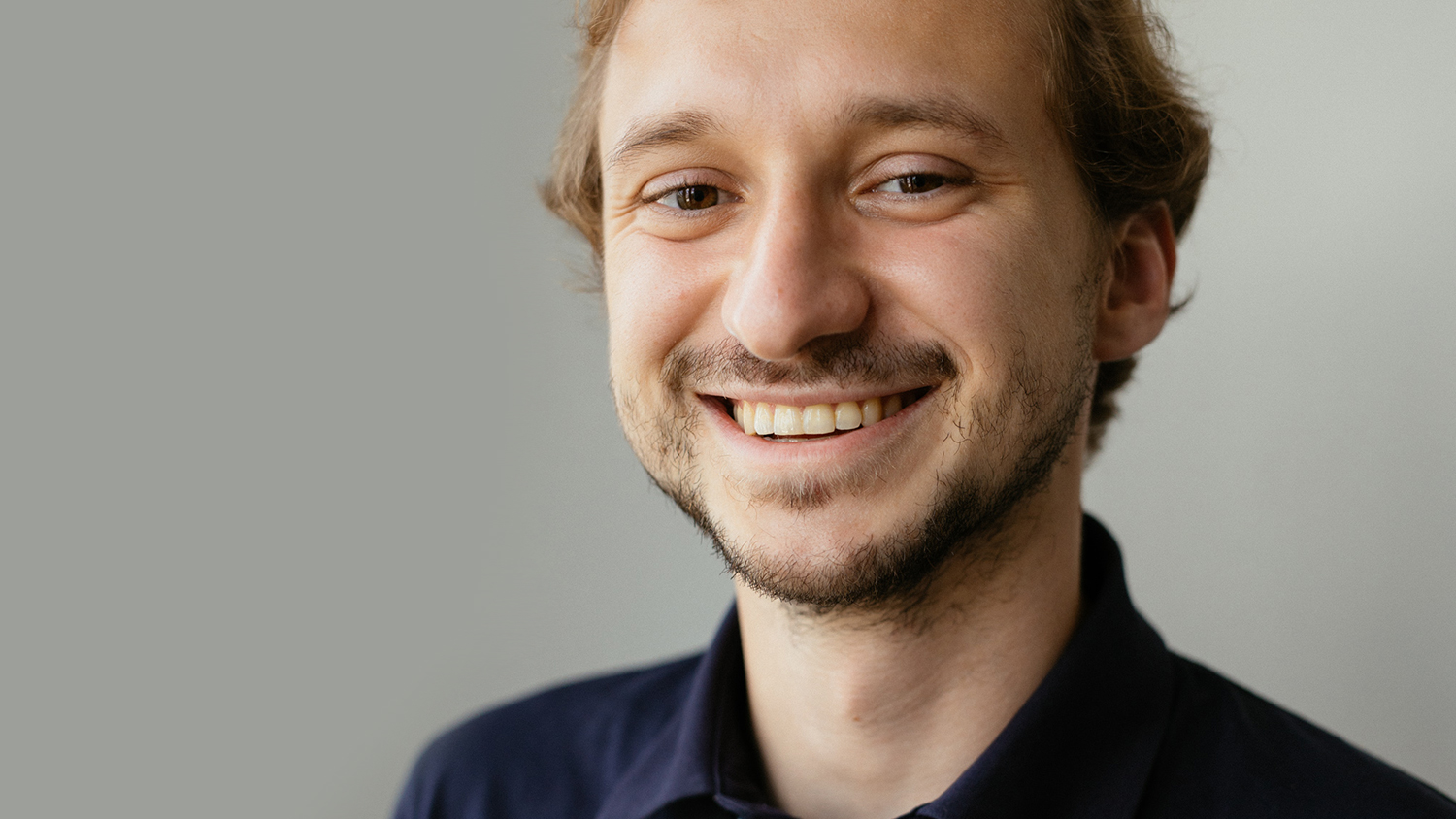After graduation: The art of online entrepreneurship

Why did you choose to study Economics and European Governance?
“My parents grew up in the Czech Republic during the communist era and worked as diplomats after getting their Economics degrees. They travelled the whole world and enjoyed a lot of freedom. I wanted to have the same, so I started to study economics in 2013. Since I was fascinated by European politics, I also pursued a Master's in European Governance in 2019. The fact that I ended up in the art scene is a coincidence, but I still apply concepts and strategies from my college years to my work on a daily basis. As an entrepreneur, an Economics degree comes in handy anyway.”
How did you end up in Utrecht?
“We were living in Latvia when I graduated from high school. My teachers encouraged me to study in the Netherlands because the quality of education is high here and everyone speaks English. I went with my parents to Rotterdam first, but we did not like it at all. But, when we arrived in Utrecht, I felt comfortable right away. The people, the nature, the architecture, everything suits me. In Utrecht, I found a home base for the first time in my life, after a childhood in which we lived in a different country every four years. I hope to travel a lot in the future, but I think I will always return to Utrecht.”
What was your most valuable experience as a university student?
“I think it's network of friends that I have built. I have also met my fiancé during my studies, an experience that I definitely would not want to have missed. Additionally, I find the relationship between students and teachers in the Netherlands so refreshing. I appreciate that my teachers were not so hierarchical and were actually quite informal in their teaching. Because of this, you can discuss things freely and learn to really consult and cooperate during the seminars. That also comes in handy at my current job.”
 How did you find your current job?
How did you find your current job?
“I applied for a Blue Book traineeship at the European Committee in the end of 2020, but I had to wait a few months for a reply. In the meantime, a friend from Latvia, Paul Makarov, who studied Business, approached me with the idea of an online art gallery called MAPA. I was interested and, besides, I had little to do anyway. Since the Covid-19 pandemic forced everything to go online anyway, people were open to our concept and we are doing very well. Eventually, I ended up scoring a traineeship at the Directorate-General for Economic and Financial Affairs in Brussels, but my heart truly lies with entrepreneurship.”
Were you interested in art during your studies?
“Not really. I had friends who studied art and I play the guitar myself, but I had never expected to work in the creative sector. I really wanted to get into European Politics after graduating. When I started studying European Governance, I thought my Bachelor's would not be useful anymore, but it turns out that my Bachelor's is actually very relevant for my business. It is also enjoyable and informative to apply everything I've learned to an entirely new work field.”
What do you hope to achieve with your enterprise?
“Galleries have a lot of power at the moment. Artists usually depend on gallery holders to show their work, but galleries ask for a commission of up to 50 per cent if the work is sold through them. By showing the artists' work online in thematic exhibitions, we provide them with a broad and international reach. Moreover, we do not have costs such as the rent of a building, which enables us to charge a low commission. That's how we ensure that artists actually earn a living from their work.”
What do you enjoy most about your job?
“I am not an artist myself, but I love thinking creatively. So, the search for original ways to make gallery holding fairer and more future-proof was an amazing challenge for me. We recently opened a pop-up brick-and-mortar gallery in London, where we could show and sell works by local artists. That was so much fun and we hope to do the same in more cities. The fact that we work so flexibly makes things challenging but also surprising. Last but not least, I get to meet many interesting and inspiring people through my work.”
What have you discovered about yourself thanks to your business?
“I am good at project management. I love doing it at MAPA and I hope to deploy those skills for other purposes in the future. For example, at a business that is dedicated to tackling climate change. I have lived in nature reserves in South Africa which are disappearing at this very moment. If I can employ my talents to make a change there, that would be amazing.”
What are your plans for the future?
“Setting up a start-up is always uncertain, but we have achieved a lot in a short time and I believe we do have a future. I also hope to become big on the European market by opening pop-up galleries across several European cities and working with European artists. By doing that, all my interests would come together in my work.”
CV: Marek Sustak (27) used to dream of working as a diplomat, but after studying Economics and getting a Master's in European Governance, he was captivated by the art scene. With his start-up MAPA, he makes the works of young artists accessible online.
This article was created in cooperation with alumni magazine Illuster. The new edition of Illuster is coming out on October 25, with the theme "(Near) Future". What will the world look like? How can we even know that? What sounds futuristic but is already reality?